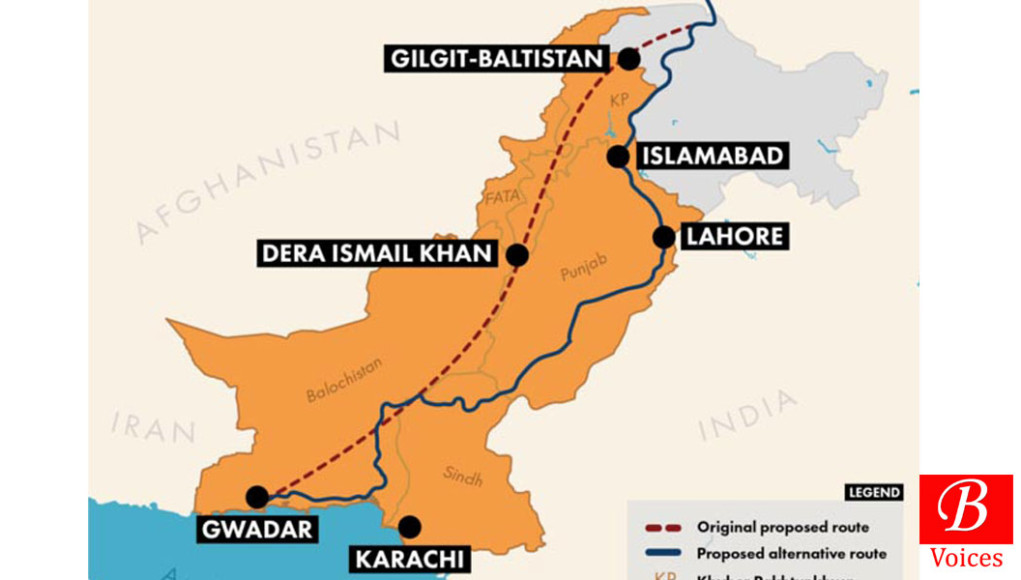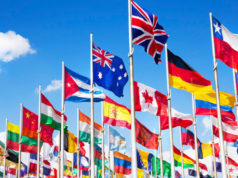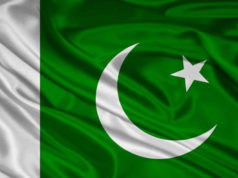Tariq Siddique
If a country wants prosperity and peace, it ought to create friendly relations with its neighbors and other powerful countries of the world. For economic gain and socio-political stability, the amicable tie among countries plays a pivotal role. Cooperation and ties among states, in many aspects stronger the country in general and prevail the regional progress in particular.
The China-Pakistan Economic Corridor (CPEC) is the project going to change the regional map and would beef up the economic activities. It would provide an opportunity to the landlocked Central Asian Republics (CARs) countries to trade their product to other parts of the world and would be the reason to bring a new era of prosperity and progress for the entire world.
Read also: CPEC: Need for Idealistic Policies in Balochistan
The Pakistan would be the main player on this journey that changes the fate of South Asian, Central Asian and Middle Eastern regions. CPEC is a mega project of about 51.5 billion of US dollars of Chinese investment that incorporates infrastructure and energy projects. It has been said that the CPEC is a corridor of opportunity and in fact, it would also be a corridor of peace and prosperity among the regional powers too. But rival of both China and Pakistan namely India never wants to see the both countries gain prosperity and progress in the region.
India has been playing an obstructive role to ruin the name of Pakistan and to isolate Pakistan regionally and internationally. India has been abetting insurgency in making disruption in Pakistan and creating panic to discourage investors. India has also been using the Iran and Afghan soils for supplying arms and other weapons to Baloch separatist and other insurgents to deteriorate the peaceful environment of our beloved country.
The Indian government and its military leadership want to show that Pakistan is a safe haven for terrorists. But on the other hand, it’s atrocious and evil objects to disturb the peace of world not hidden from the eyes of peace loving nations. Recently, the large number of Indian spy agency, the Research and Analyses Wing (RAW) officers have captured by Pakistani Agencies in Balochistan. They were involved in many terrorist incidents in Pakistan’s soil, a slap on the Indian face to show herself as a peace lover country and cleared the notion that Indian double standards are much dangerous than Nuclear attacks for the region.
The Indian Prime Minister Narender Modi recently visited Afghanistan, Iran and Saudi Arabia. Where he tried to defame Pakistan and also try to convey the rumor that Pakistan is not serious to take action against the terrorist outfits, like Lashkar-e- Tayyaba (LeT) and Jamaat-Ud-Dawa (JuD).
Firstly, India should be cognizant that Pakistan has been suffering from terrorism attacks, since a decade. The leading role of Pakistan in War on Terror is not hidden in sight of world’s peace-loving nations. So the blame game and Indian accusations are just parts of her mission to not let the peace to triumph in the region.
Pakistan’s Prime Minister Mr Nawaz Sharif exposed the ongoing killing in the Indian occupied Kashmir by the Indian troops. The Indian government and its army had planned to attack at Uri sector to create oxygen for her rumors, then would blame on Pakistan and divert the attention of the world from the Indian occupied Kashmir, where its army slaughtering the innocent Kashmiri people.
The Pakistan-China Economic Corridor is not just a cooperation and coordination project among the states, but it would also prove that it provide an opportunity to the entire world to establish a systematic environment where it would completely discard all the conspiracies by some rivals. It would also be the foundation to bring a dawn of the newly prosperous and peaceful epoch for the regional countries.
Writer has completed his Bachelor degree in Economics and Sociology from the University of Balochistan. He belongs to Pishukan, District Gwadar.
Disclaimer: Views expressed in this article are those of the author and Balochistan Voices not necessarily agrees with them.
Share your comments!








